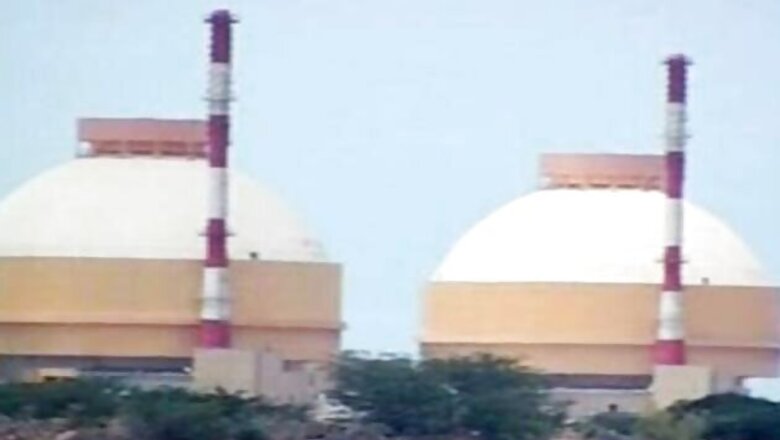
views
The Supreme Court on Monday sought replies from the Centre and nuclear regulator AERB on a plea against commissioning of Kudankulam Nuclear Power Project in Tamil Nadu on the ground that its directions on ensuring safety in and around the plant have not been complied with.
A bench of justices K S Radhakrishnan and Dipak Misra issued notices to the Department of Atomic Energy, Ministry of Environment and Forests, Atomic Energy Regulatory Board (AERB), Nuclear Power Corporation of India Ltd, Tamil Nadu government and its pollution control board.
The court posted the matter for hearing in January on the plea of G Sundarrajan who had moved the apex court against the commissioning of the plant. While giving a green signal to the nuclear power project, the apex court had said, "Apprehension, however, legitimate it may be, cannot override the justification of the project....".
However, it had passed a slew of directions relating to environment protection, disaster management, safety of the people, and quality of systems and components in the plant and had said that they be complied with before its commissioning.
Alleging violations, the fresh plea has been filed against the Madras High Court order which did not entertain the petition and asked Sundarrajan to move the apex court.
"AERB, on 4th July 2013, had given a clearance for commissioning of the Kudankulam Nuclear Power Project without satisfying itself that all the directions have been complied with," the petition said.
Seeking "ex-parte" injunction against commissioning of the plant, it said, "The nuclear project is surrounded by about 100 villages with a population of about 10 lakhs, which totally depends on fishing for their livelihood," and their lives would be at stake because of the project.
"On July 4, even without verifying on the basis of materials to be made available to AERB by other authorities whether the directions issued by this court were fully implemented, AERB hurriedly granted clearance for FAC, a major stage in the commissioning of KKNPP," it said.
The petition, filed through lawyer Prashant Bhushan, said Tamil Nadu Pollution Control Board, had on July 8 filed the compliance report in the apex court registry. "The report shows that the conditions relating to on-line continuous monitoring of the temperature and development of green belt around the project boundary imposed in the environmental clearance dated 23.9.2008 were not complied with," it said.
The apex court, in its earlier judgement, had laid down 15 guidelines on commissioning, safety and security and environmental issues concerning the plant. It had said the plant should not be made operational unless AERB, Nuclear Power Corporation of India Ltd (NPCIL) and Department of Atomic Energy accord final clearance for commissioning of the plant ensuring the quality of various components and systems because their reliability is of vital importance.
It had also said that MoEF should oversee and monitor whether NPCIL is complying with the conditions laid down by it while granting clearance to the project. The apex court had directed NPCIL and AERB to maintain constant vigil and make periodical inspection of the plant at least once in three months and if any defect was noticed, it had to be rectified forthwith.
It had said NPCIL should ensure that the radioactive discharges to the environmental aquatic atmosphere and terrestrial route shall not cross the limits prescribed and NPCIL, AERB and state of Tamil Nadu should take adequate steps to implement the National Disaster Management Guidelines.


















Comments
0 comment